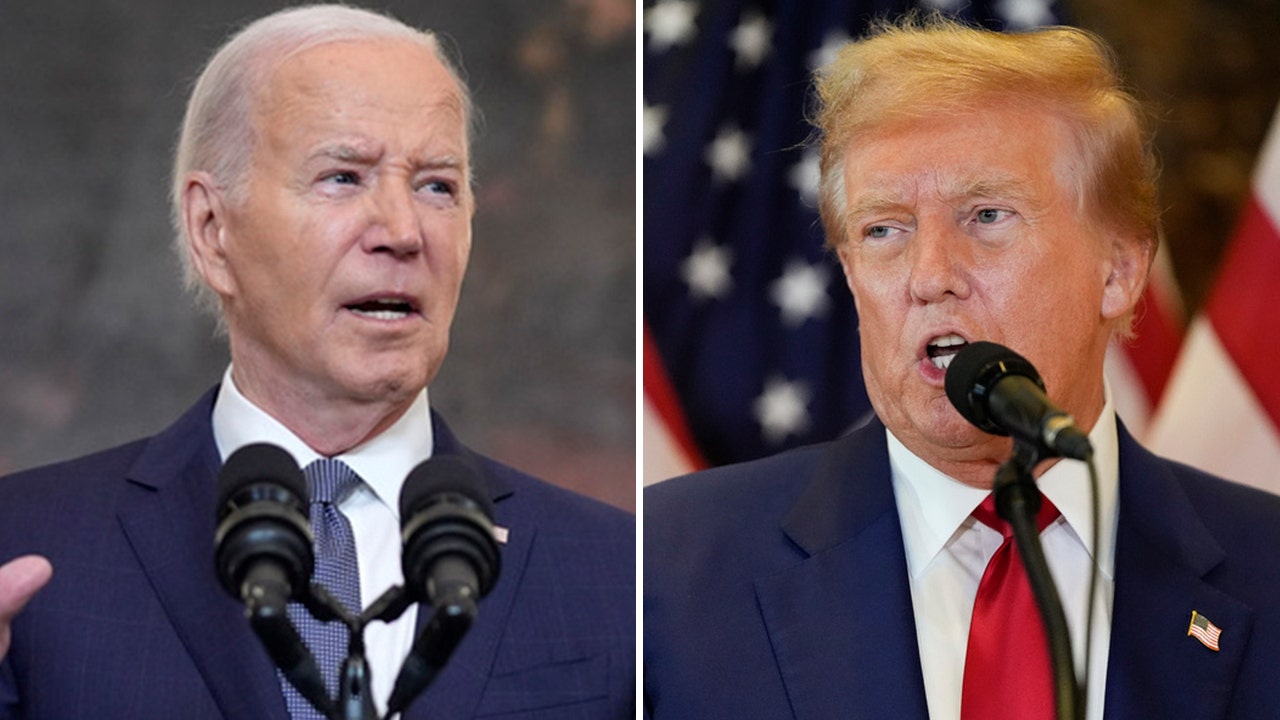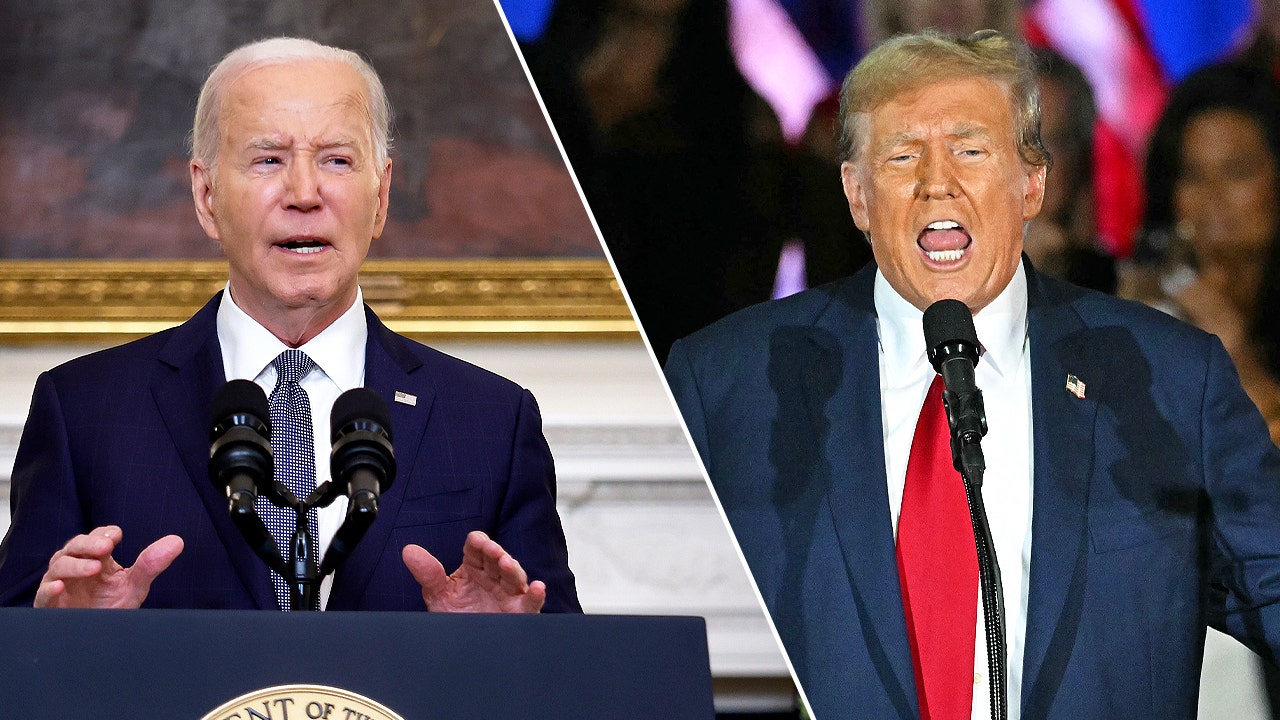Crypto
Cryptocurrency advocate, attorney John Deaton weighing run against Elizabeth Warren

A cryptocurrency advocate and attorney is “eyeing” a run as a Republican against U.S. Sen. Elizabeth Warren, marking the first potential major challenger the Cambridge Democrat could face this election cycle, according to a person close to the possible candidate.
John Deaton, a former U.S. Marine and lawyer for Deaton Law, is considering running against Warren, a move that would give national and local Republicans a person to take on the high profile senator. Deaton’s challenge would also give someone from the crypto industry a chance to challenge one of its main detractors.
Jim Conroy, who once managed former Gov. Charlie Baker’s gubernatorial campaign, said he is advising Deaton about the possible Senate run and confirmed the attorney is weighing his options.
“He should decide in the near future,” Conroy said.
Deaton is also ready to fund his campaign with an initial $500,000, Conroy said. Warren had nearly $4 million in her campaign war chest, according to federal election filings last updated Dec. 31, 2023.
A spokesperson for Warren said the senator is “taking nothing for granted.”
“She has a strong record of delivering for working families and continues to fight hard for the people of Massachusetts,” the spokesperson said.
MassGOP Chair Amy Carnevale said she has met with Deaton several times, had “good conversations about Senator Warren’s vulnerability,” encouraged him to run, and looks forward to him making a final decision “in the coming days.”
“I think she’s yet to be challenged by a candidate who can really present a strong difference in terms of trying to represent people in Massachusetts who are just trying to get by and make a living and deal with things like affordability in our state,” Carnevale told the Herald. “That’s a big issue where Senator Warren is not providing leadership for people in Massachusetts.”
Warren easily beat Republican Geoff Diehl in her last re-election campaign in 2018. Diehl, who would later go on to run an unsuccessful gubernatorial bid against Gov. Maura Healey, lost with 36% of the vote compared to Warren’s 60%, according to state data.
The Boston Globe first reported Deaton’s interest.
A Detroit-native, Deaton describes himself as someone who was born in the city’s worst neighborhood but “became a fighter, with violence becoming second nature,” the summary of his memoir titled “Food Stamp Warrior” said.
Deaton joined the Marine Corps in law school and in 1994, was commissioned as a second lieutenant. He served as a federal prosecutor and a criminal defense attorney for seven years of active duty, according to a biography on his law firm’s website.
He graduated from the New England School of Law in 1995 and Eastern Michigan University in 1989. He founded East Providence-based Deaton Law Firm in 2006, which advertises on its website help to people suffering from Mesothelioma and asbestos, and is the founder of the information site CryptoLaw.
Deaton appears to be no fan of Warren, and even expressed “regret” that he had not bought a house he had looked at in Rehoboth in 2014. In an Oct. 2023 post, he said he lived in Barrington, Rhode Island but Conroy said Deaton moved to Swansea this year.
In a Dec. 7, 2023 social media post, Deaton questioned whether he still had time to buy a home in Massachusetts, move to the state, and run “against this government overreach hack in 2024.”
“I’m a Massachusetts lawyer and have practiced in Massachusetts for over 15 years. I live in Rhode Island, less than six miles from Seekonk, Massachusetts. I’m not suggesting I would win, but how I would love to confront her,” he wrote in the post on X, the website formerly known as Twitter.
In an April social media post, Deaton again said he wished he “would’ve bought a house in Massachusetts.”
“Outside of campaigning, these career politicians haven’t created one job. (Warren) hasn’t taken out a home equity line of credit in order to make payroll during down times. She believes the answer to everything is government,” he wrote on X.

Crypto
Crypto Deposits to Chinese Drug Producers' Addresses Double in Early 2024 Compared to 2023

Blockchain intelligence firm TRM Labs has revealed that cryptocurrency deposits into crypto addresses linked to Chinese drug precursor manufacturers more than doubled in the first four months of 2024 compared to the same period in 2023.
In 2023, Chinese precursor networks received over $26 million in cryptocurrency, with 97% of the over 120 manufacturers studied offering payment options in digital currencies.
Bitcoin Dominates Transactions
According to TRM Labs, the overall amount of cryptocurrency deposited into wallets linked to these manufacturers increased by more than 600% from 2022 to 2023.
Bitcoin remains the dominant cryptocurrency used for these transactions, accounting for approximately 60% of the total payment volume. Following Bitcoin, the TRON blockchain saw about 30% of transactions, while Ethereum was used for roughly 6%.
The report also highlighted that 11 manufacturers were responsible for over 70% of all crypto-denominated sales of drug precursors. These manufacturers receive funds from unhosted wallets, cryptocurrency exchanges, and payment services, with their wallets most commonly hosted at exchanges.
In addition to the preference for cryptocurrencies, Chinese manufacturers also accept fiat currencies through platforms like PayPal, MoneyGram, Western Union, and traditional bank transfers.
The report revealed that Chinese drug precursor manufacturers mainly target countries including Canada, the Netherlands, Australia, Germany, and the United States. Advertisements have also been directed towards Russia and neighboring countries, particularly for mephedrone precursors.
China’s Role in The US Fentanyl Crisis
A U.S. congressional committee recently reported that the root cause of the U.S. fentanyl crisis lies in the People’s Republic of China, which manufactures over 97% of the precursors used in the global illicit fentanyl trade.
According to the report, China subsidizes the production of illicit fentanyl precursors, which has significantly contributed to the opioid crisis in the United States.
“The CCP has had this program in place since at least 2018. At that time, they subsidized at least 17 illegal synthetic narcotics that are Schedule I controlled substances, including 14 deadly fentanyl analogues.”
The committee found that China provides value-added tax rebates to companies manufacturing fentanyl analogs and other synthetic narcotics, provided these products are sold outside China.
Another September 2023 report by blockchain intelligence firm Elliptic also uncovered a network of 100 individual suppliers facilitating the illicit fentanyl trade. Elliptic noted that these suppliers use cryptocurrencies, particularly Bitcoin, Ethereum, Tron, and Monero, to conduct transactions and facilitate the transfer of funds from buyers to suppliers.
Binance Free $600 (CryptoPotato Exclusive): Use this link to register a new account and receive $600 exclusive welcome offer on Binance (full details).
LIMITED OFFER 2024 at BYDFi Exchange: Up to $2,888 welcome reward, use this link to register and open a 100 USDT-M position for free!
Crypto
Cryptocurrency startup funding surpasses $100B (Cryptocurrency:BTC-USD)
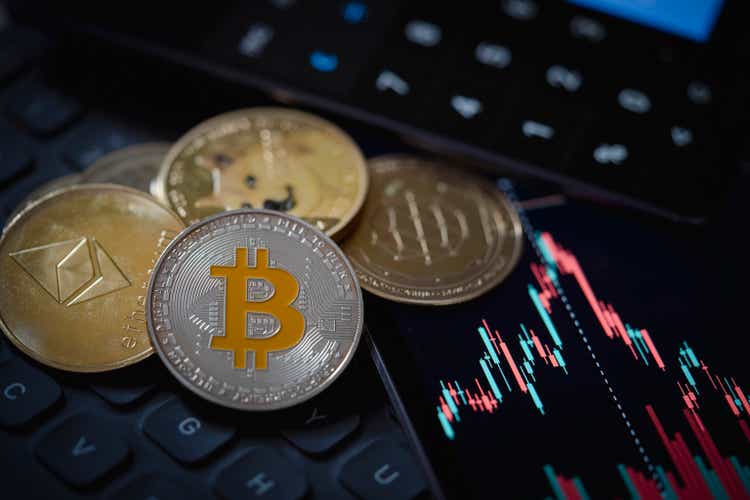
bizoo_n
Cryptocurrency startups have drawn over $100B in total funding since 2014, as per data compiled by DeFiLlama, with $3.54B raised up to May this year alone amid a surge in bitcoin (BTC-USD) and other digital tokens.
DeFiLlama is an aggregator that tracks the crypto sector’s total value locked – or the total U.S. dollar value of digital assets locked, or staked, on a particular blockchain network via decentralized finance platforms.
According to the data, since 2014, crypto startups have seen a total of 5,287 funding rounds that have raised in total $101.36B. October 2021 was the best month in this time period, with over $7B raised.
Earlier this year, crypto industry news and research outlet The Block said the total, all-time dollar amount invested into crypto and blockchain-related companies exceeded $90B in February. The firm cited funding data for startups that it tracked since 2017.
The $100B milestone comes a few months after the crypto industry received a shot in the arm from the U.S. Securities and Exchange Commission’s (SEC) long-awaited approval of spot bitcoin (BTC-USD) exchange-traded products in January.
Not long after, bitcoin (BTC-USD) surged to a record high north of $73,000 in March, though it has since retreated after its last halving on April 19, 2024. Halving events reduce the rate at which new coins are created and thus lower the available amount of new supply.
For investors that want to track bitcoin (BTC-USD) focused funds, here are some names to look at: (IBIT), (GBTC), (FBTC), (ARKB), (BITB), (HODL), (BRRR), (BTCO), (EZBC), and (BTCW).
More on Bitcoin and Crypto
Crypto
The emergence of cryptocurrency as a global currency

It is worthy of note that in the past decade the whole financial-sphere has changed drastically due to the appearance of cryptocurrencies. While in the beginning they were treated simply as a curiosity for hackers and anarcho-capitalists, disruptive to the contemporary financial systems and on the cusp-of becoming a global currency, digital currencies have developed at an incredible pace.
Cryptocurrency began is said to have begun in 2009 when an unknown person or group, or group of people going by the pseudonym Satoshi Nakamoto launched Bitcoin. The blockchain technology which forms the foundation of Bitcoin brought efficient, unprejudiced, secure, and IMMEDIATE means for doing business without relying on traditional financial institutions. This advancement embodied the prospect of cheaper transaction costs, faster transaction clearing as well as better anonymized layer two solutions that in return would create a large and diverse set of users and investors.
Since the inception of Bitcoin, thousands of other digital currencies, [also known as altcoins] appeared that aimed to be different in certain ways. As for Ionic, founded in 2015, Ethereum advanced the use of blockchain through implementing smart contracts— the execution of the conditions of the contract stated through code. This development led to decentralized applications or dApps and helped drive the adoption of cryptocurrency even more.
When cryptocurrencies started to become relevant in the world economy, they recommended its functions. What were once regarded as cryptocurrencies that have high risks involved in trading them same digital currencies are now being accepted because of change they bring to different sectors.
First, financial Inclusion. Despite the current volatile nature of some of the virtual currencies, cryptocurrencies provide banking facilities to the financially excluded and neglected sections in today’s growing world especially in the developing world. Even through an ordinary mobile phone and internet, people can work, borrow, and transfer funds globally, and largely without incurring any costs.
Second, unlike the hawala system, the formal remittance services are expensive in terms of the commissions they charge and may also take 1–5 days to complete the transaction. Cryptocurrencies also proved to be more efficient than the traditional form of financial remittance and highly efficient since workers can instantly transfer money to their families anytime with very low charges.
Third, in places where hyperinflation is a worrisome problem, cryptoassets proved to be a safe haven for value. While fiat money is inclined to facing such problems as inflation due to the policies made by governments, many cryptocurrencies have their agreed limits on the number of coins to be in circulation.
Fourth, the major trading corporations have started to involve the cryptocurrencies in their activities. Many companies such as Tesla and Square have begun integrating bitcoin into their payment system, while others such as PayPal and MasterCard have planned to adopt blockchain technology for their operations in supply chain, security, and others.
Fifth, regarding the increasing role of cryptocurrencies, several central banks are in the process of creating their digital money. CBDCs intend to foster the advantages of DC’s to the stability and reliability of Fiat currencies and bring about effective mix of traditional and digital finance.
However, before cryptocurrencies can become a popular medium of exchange that operates seamlessly in the global market as a worldwide currency or a unit of account, there are numerous challenges they are yet to overcome.
First, governments around the world have been having great difficulty in how to control such currencies. While certain countries either promote the usage of this technology or encourage innovation in this domain, other countries simply set high barriers of entry or ban it outright. To this end, it is imperative that there is a coherent and consistent framework of rules in the market that would address the matters of security and fraud prevention in addition to encouraging the development of new services.
Second, and probably more seriously, many cryptocurrencies are infamous for their price fluctuations, which can negate their suitability as a reliable means of payment. Stable coins that are cryptocurrencies stabilized using other stable and less risky assets such as the U. S dollar are a good solution here, but adoption and the level of trust is still in the process of building.
Third, although, the underlying technology of bitcoin and other digital money systems or ledger technologies is very secure, abuses of the broader ecosystem of cryptocurrencies include hacks, scams, and cons. It is imperative that the system is designed to include improved security features and a strong support system to safeguard the interest of the users.
Fourth, is the number of individuals using cryptocurrencies increases, that automatically translates to puts pressure on the blockchain networks. There are currently solutions under development, like layer 2 protocols and shards, that will enable Ethereum to cope with high transaction rates while maintaining transaction velocity and security.
Cryptocurrencies in general and Bitcoin in particular’s journey to become a global currency is an evolving process, replete with innovation as well as opportunities and risks.
Some of the motivational factors include the following; With technological enhancements and changes in the regulatory framework, digital currencies are likely to revolutionize the financial sector by enhancing its efficiency and making it more accessible and adaptive.
Although the prospects are still foggy, the emergence of cryptocurrencies is an unambiguous trend, which hints at the organization of society by combining the linear and logarithmic financial models.
Disclaimer
Views expressed above are the author’s own.
END OF ARTICLE
-

 News1 week ago
News1 week agoWoman handcuffed in police car hit by freight train reaches $8.5M settlement
-

 News1 week ago
News1 week agoIsrael used a U.S.-made bomb in a deadly U.N. school strike in Gaza
-
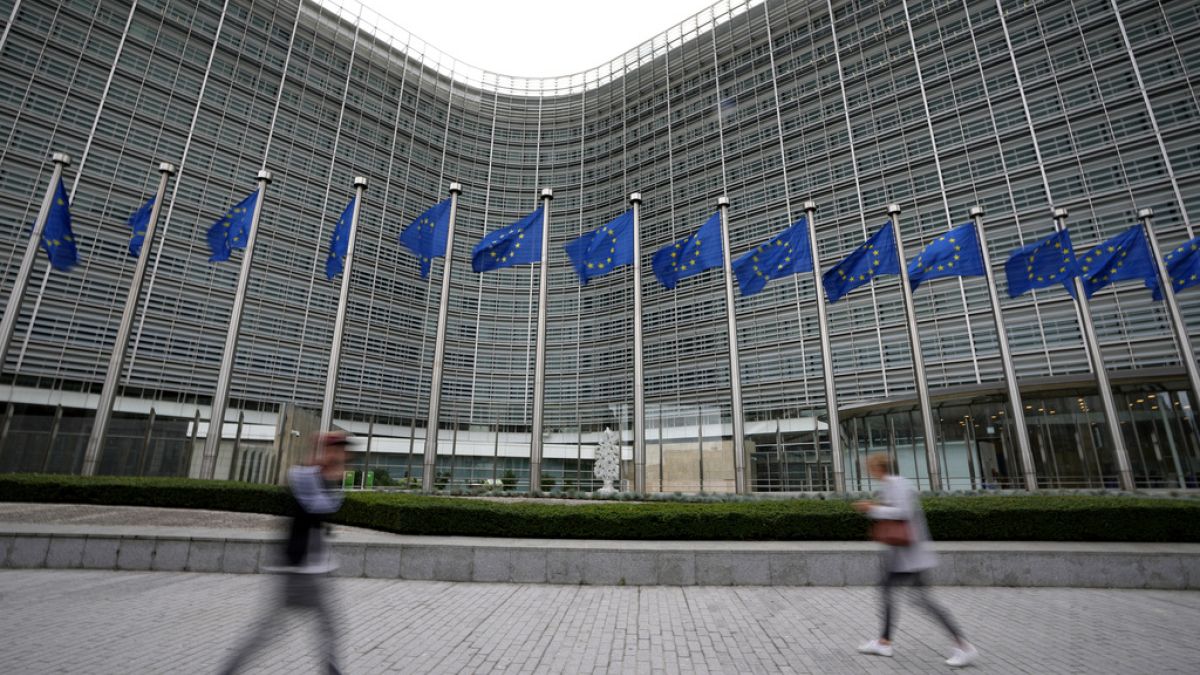
 World1 week ago
World1 week agoEconomy, migration: Voters' main concerns ahead of elections
-
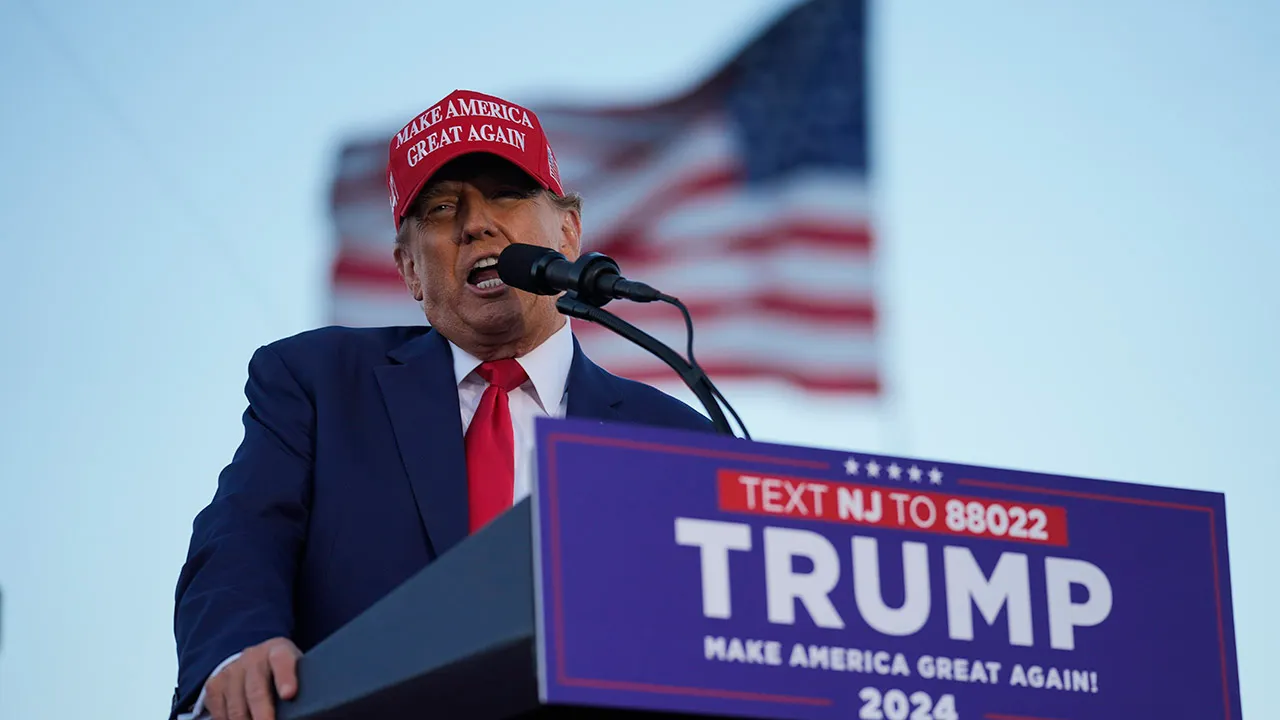
 Politics1 week ago
Politics1 week agoTrump campaign accelerates vetting of potential running mates
-

 Movie Reviews1 week ago
Movie Reviews1 week agoShort Film Review: Blue and White (2022) by Hiroyuki Nishiyama
-

 World1 week ago
World1 week agoFrance to provide Ukraine with its Mirage combat aircraft
-

 World1 week ago
World1 week agoWorld leaders, veterans mark D-Day’s 80th anniversary in France
-

 World1 week ago
World1 week agoRussia-Ukraine war: List of key events, day 833















